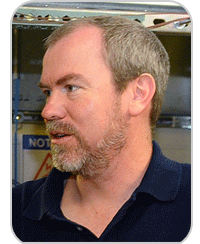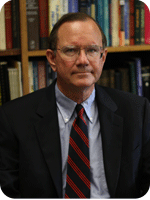- Details
-
Published: Thursday, April 19 2012 09:16
The world is posed at the edge of a new technological revolution that will make the strange and unique properties of quantum physics relevant and exploitable in the context of information science and technology. Many think the key to crossing into this new world of quantum computing is something called a Majorana fermion.
Condensed matter physicists including Sankar Das Sarma’s group at the University of Maryland, have been in hot pursuit of Majorana fermions for decades. Originally predicted in 1937 by Ettore Majorana, these exotic particles serve as their own anti-particles. Das Sarma, the Richard E. Prange Chair in physics at Maryland and director of the university’s Condensed Matter Theory Center (CMTC), is among those leading quantum information scientists who believe that the realization of Majorana fermions would open powerful new possibilities in quantum computation.
Now a group at Delft University in the Netherlands led by L.P. Kouwenhoven has published experimental signatures of the elusive particle. The research, which appeared in Science Express on April 12, 2012, precisely follows theoretical proposals made in 2010 by Professor Das Sarma and his collaborators at the Joint Quantum Institute (JQI), which is a UMD-based collaboration between the University of Maryland and the National Institutes of Standards and Technology.
“This is certainly very exciting news,” says Das Sarma. “It is not often that a theoretical prediction for something totally new actually works out in the laboratory. One, however, has to be cautious because while this experiment from Delft has provided the likely necessary evidence for the existence of the Majorana, the sufficient conditions are more difficult to achieve and may take more time.”
The Delft University scientists observed evidence of the particle at the ends of one-dimensional (1D) nanowires. The wires are made of the semiconducting material indium antimonide. This substance has one of the necessary ingredients for supporting the Majorana fermions: strong spin-orbit coupling.
What is spin-orbit coupling? An electron, which can be roughly thought of as a tiny spinning top, lives in a natural environment of electric fields. These fields force a charged particle into motion. Due to the laws of electromagnetism, the moving charge gives rise to a magnetic field, which can in turn affect the behavior of the electron. Heavier elements are likely candidates for having strong spin-orbit interactions.
The wires are placed near a superconductor and the “proximity effect” causes a region of superconductivity to also form in the wire. The experimentalists combine the nanowire and superconductor on a microchip and begin the search at temperatures just above absolute zero. Das Sarma’s theory established that such a nanowire in the presence of an external magnetic field along the wire would lead to the Majorana fermions at low (~1K) temperatures, exactly as observed in the Delft experiment.
The JQI/CMTC research group has predicted different ways to observe these particles in semiconductor/superconductor systems. For instance, in a variation on their original 1D nanowire proposals, they showed the surprising result that the Majorana fermions in the wire are not so delicate and would survive even if the strict 1D restrictions were relaxed. In fact, the Majorana fermions can be stable, even in the presence of the imperfections and disorder that often exist in solid state materials. A very recent work from Das Sarma’s group, which appeared on the condensed matter archive on April 15, provided a detailed theoretical analysis of the Delft data, further enhancing the claim that the elusive Majorana particle may have finally been found in nature.
Related publications and links:
"Signatures of Majorana Fermions in Hybrid Superconductor-Semiconductor Nanowire Devices," V. Mourik, K. Zuo, S.M. Frolov, S.R. Plissard, E.P.A.M. Bakkers, and L.P. Kouwenhoven, Science DOI: 10.1126/science.1222360 (Published online April 12, 2012)
"Generic New Platform for Topological Quantum Computation Using Semiconductor Heterostructures" J. Sau, R. Lutchyn, S. Tewari, S. Das Sarma, Phys. Rev. Lett. 104, 040502 (2010)
"Majorana Fermions and a Topological Phase Transition in Semiconductor-Superconductor Heterostructures," R. Lutchyn, J. Sau, S. Das Sarma Phys. Rev. Lett., 105, 077001 (2010)
"Non-Abelian quantum order in spin-orbit-coupled semiconductors: Search for topological Majorana particles in solid-state systems" J. Sau, S. Tewari, R. Lutchyn, T. Stanescu, S. Das Sarma, Phys. Rev. B 82, 214509 (2010)
“Zero bias conductance peak in Majorana wires made of semiconductor-superconductor hybrid structures” C.H. Lin, J.D. Sau, and S. Das Sarma, arXiv:1204.3085 (at arXiv.org)



